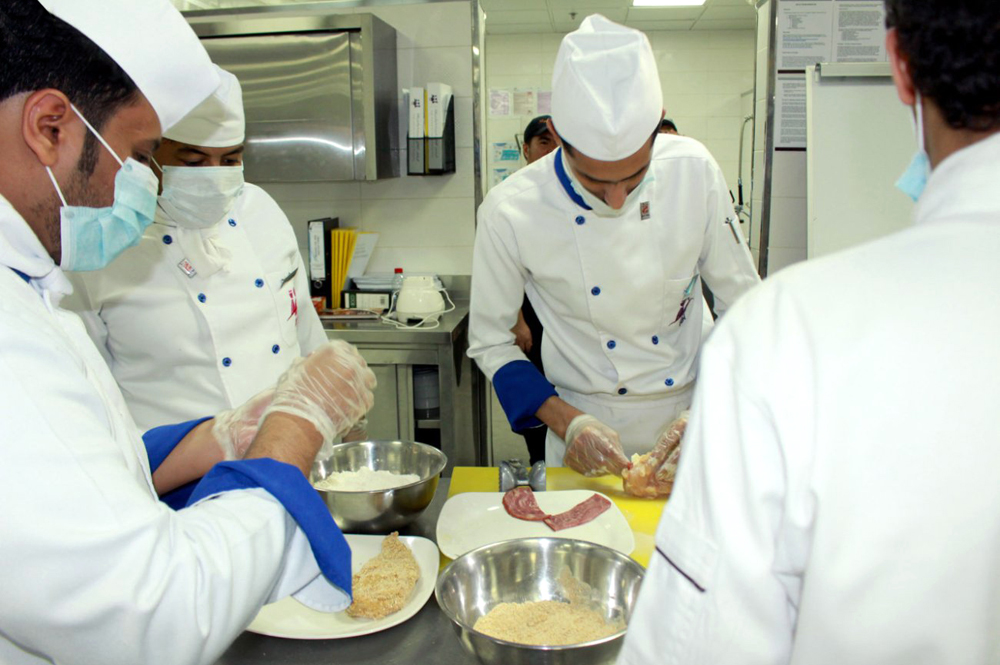Enjoy a shawarma? Here’s how you know it’s safe to eat

We all enjoy eating out, and there has been a rapid growth in the food industry recently, with every city embracing cuisines to satisfy all tastes. It would be fair to say that any catering establishment able to supply food of excellent quality at a reasonable price is almost guaranteed success.
However, there are undoubtedly some parts of the world where dining out can be a risky business. What are the duties imposed on the owners of establishments in Saudi Arabia to ensure the health and safety of their customers? It’s a large sector, with many aspects, but since most people’s interactions with the food industry take place in restaurants, let us concentrate on that area.
While the Food and Drug Authority enacts some regulations governing the preparation of food, the Ministry of Municipal and Rural Affairs is mainly responsible for laws related to the food industry in Saudi Arabia, and its supervisory bodies are represented in municipalities throughout the Kingdom. I must say I enjoyed reading the detailed rules that regulate all types of food establishments.
The regulations stipulate that a restaurant should be located on a commercial street, within a reasonable distance of gas shops and stations, and should occupy a minimum area of 65 square meters. Safety requirements must accord with Civil Defense instructions, and there must be adequate parking spaces.
Food storage is crucial, and there is a raft of regulations covering storage methods and temperature, including the correct use of refrigeration. In addition, utensils used to prepare food may not be susceptible to rust.
Hygiene is of prime importance, and restaurants must prominently display posters instructing staff on hygiene rules and the importance of daily cleaning.
Dimah Talal Alsharif
The law requires restaurant owners and managers to check the validity of food, to ensure that it has not passed its expiry date or shows any signs of damage. Reassuringly, there is even a special section of the law devoted to the preparation and slicing of shawarma, including the temperature to which it must be heated.
It is an offense to serve food prepared the day before, and sauces such as mayonnaise, using raw egg, must be supplied by licensed processing factories rather than prepared in the restaurant.
Hygiene is of prime importance, and restaurants must prominently display posters instructing staff on hygiene rules and the importance of daily cleaning.
Obviously, a restaurant’s staff play a crucial role in safeguarding public health. The law requires them to be free of any contagious diseases, for which they must be tested annually, and to be immunized against conditions such as meningitis and typhoid fever. They must cover their nose, mouth and head while preparing food, and wear appropriate gloves and other protective clothing. They may not wear jewelry, or even touch their mouth, nose or head while preparing or serving food.
All the rules and regulations are strictly enforced, so a restaurant’s biggest nightmare is the arrival of a municipal inspection team, which is just as it should be when public health is paramount.
Offenses may result in a fine of between SR5,000 ($1,333) and SR20,000, which may be doubled if the offense is repeated, and the food in question will be destroyed. There is a fine of SR10,000 for each case of food poisoning, the matter will be made public, and the offending restaurant will be closed for 30 days. For repeated offenses, the restaurant’s license will be revoked, and it may not reapply for 5 years.
Finally, public vigilance is essential in keeping restaurants up to the mark. The Ministry of Health contributes to community awareness, and the public may report any offense by calling 940.
• Dimah Talal Alsharif is a Saudi legal consultant, head of the health law department at the law firm of Majed Garoub and a member of the International Association of Lawyers.
Twitter: @dimah_alsharif









































